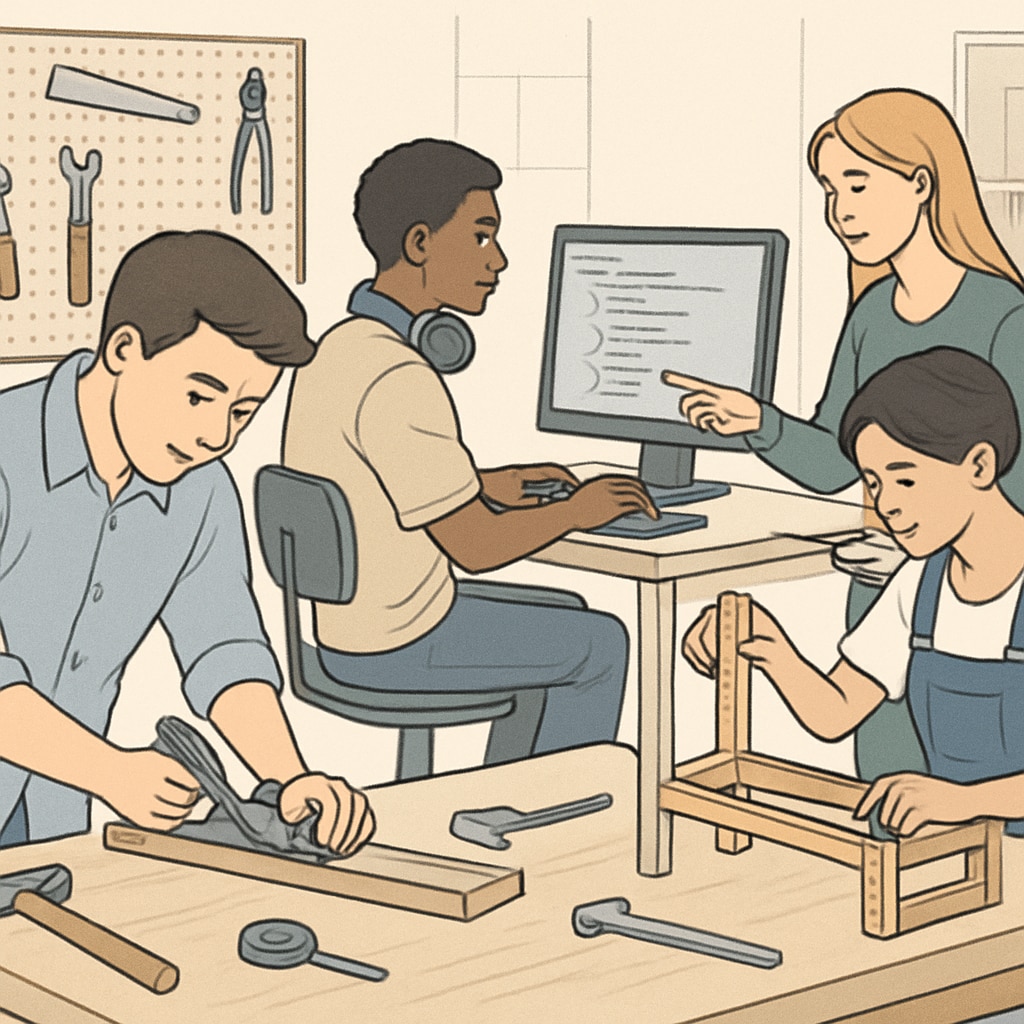In the UK, academic interruptions due to family or personal challenges are a reality for many young people. However, the landscape of “continuing education in the UK” offers a wide range of opportunities to help them regain their footing. From vocational qualifications to online learning platforms and community-driven initiatives, there are numerous pathways to rebuild an educational journey. This article explores these options, providing young people and their families with practical solutions and emotional support to navigate these challenges.
Vocational Qualifications: Building Skills for the Workforce
Vocational qualifications are a popular and practical choice for young people who wish to continue their education while also preparing for the workforce. Programs such as BTECs (Business and Technology Education Council qualifications) and NVQs (National Vocational Qualifications) offer hands-on training in fields like healthcare, IT, and construction. These qualifications are often flexible, allowing students to balance their studies with part-time work or other responsibilities.
In addition, vocational training can lead directly to employment opportunities or further study. For example, many students use their vocational qualifications as a stepping stone to apprenticeships, which combine on-the-job training with classroom instruction. This dual approach ensures that students are equipped with both theoretical knowledge and practical experience.

Remote Learning: Flexibility for All Circumstances
Remote learning has become increasingly accessible and is an excellent option for those who need flexibility. Platforms such as Open University and FutureLearn offer accredited courses that can be completed entirely online. These programs cover a wide range of subjects, from foundational skills in math and English to specialized topics like digital marketing or cybersecurity.
One of the key benefits of remote learning is its adaptability. Students can learn at their own pace, making it easier to fit education around other commitments. For example, young parents or individuals with part-time jobs can pursue their studies without the need for a rigid schedule. Additionally, many remote learning platforms provide free or low-cost courses, making education more accessible to all.

Community Support Programs: Holistic Guidance for Success
Community initiatives play a crucial role in supporting young people who have experienced academic interruptions. Local organizations often offer mentorship programs, tutoring services, and workshops focused on personal development. For instance, programs like The Prince’s Trust provide tailored support to help young individuals build confidence, acquire new skills, and transition back into education or employment.
These programs are particularly valuable for students who may struggle with the emotional and psychological impact of academic interruptions. By fostering a sense of belonging and encouraging self-confidence, community-based initiatives help young people overcome barriers and achieve their goals.
Emotional Support and Guidance: A Critical Component
Reentering the education system after an interruption can be daunting. Emotional support is essential to ensure long-term success. Schools, colleges, and community centers often have counselors available to provide guidance and address mental health concerns. Additionally, peer support groups can create a safe space for young people to share their experiences and learn from others in similar situations.
Parents and guardians also play a vital role in this journey. Encouraging open communication and celebrating small milestones can go a long way in building a young person’s confidence and motivation. By combining emotional support with practical solutions, families can create a strong foundation for a successful return to education.
Conclusion: A New Beginning Awaits
While academic interruptions can be challenging, they do not have to be the end of a young person’s educational journey. The UK offers a wealth of resources, from vocational qualifications and remote learning to community programs and emotional support services. By exploring these diverse pathways, young people can rebuild their confidence, acquire valuable skills, and create a brighter future for themselves.
For more information on vocational qualifications, visit this overview on Wikipedia. To explore remote learning opportunities, check out Open University’s website.
Readability guidance: This article uses short paragraphs, clear headings, and lists when appropriate. It balances actionable advice with emotional support, ensuring accessibility for a broad audience. Transition words are included throughout to maintain a smooth flow.


